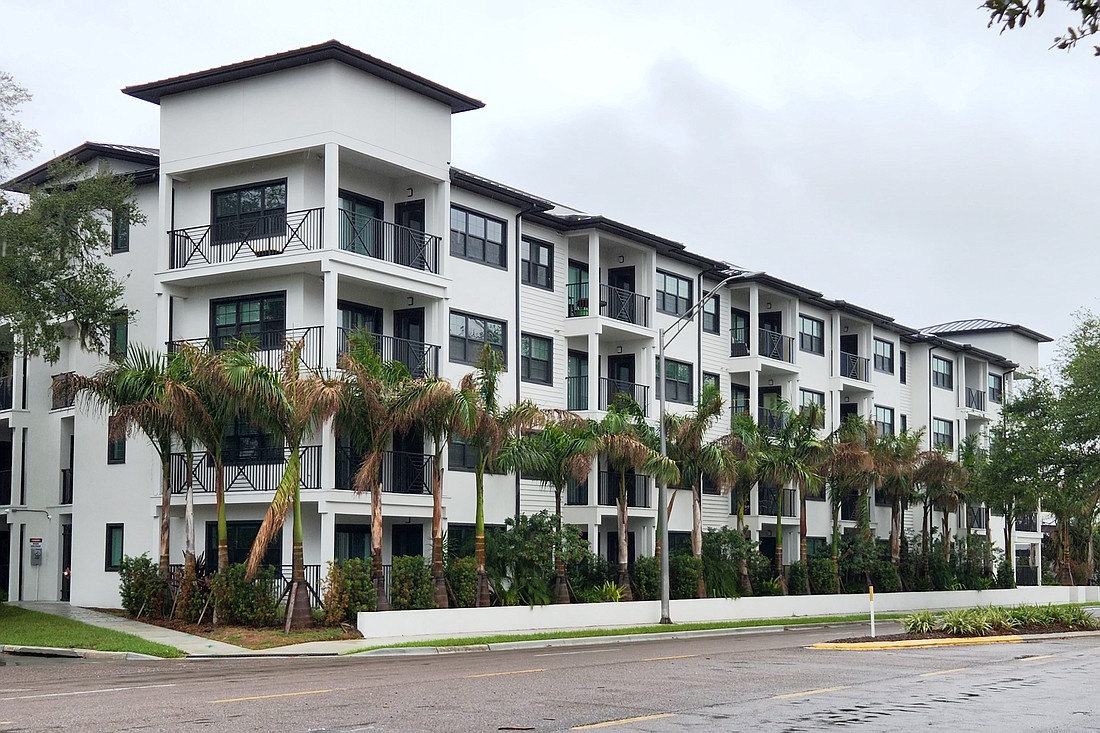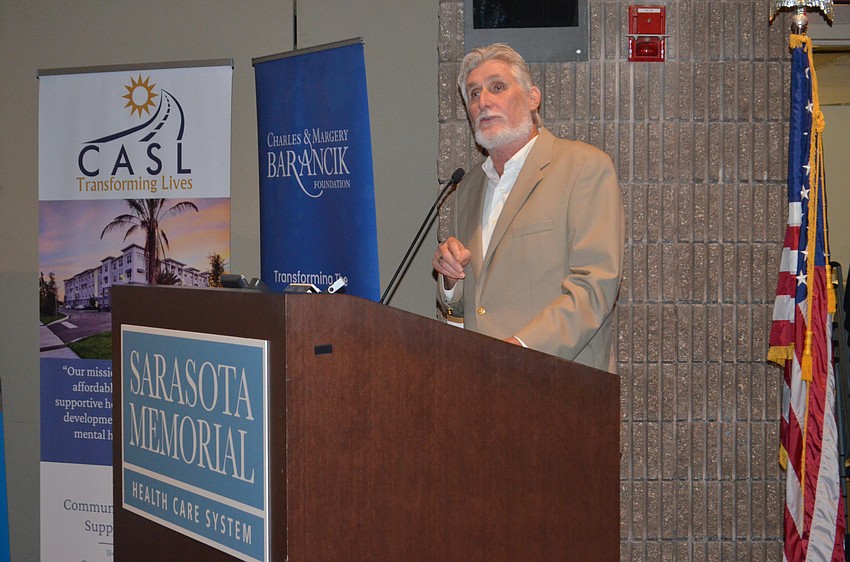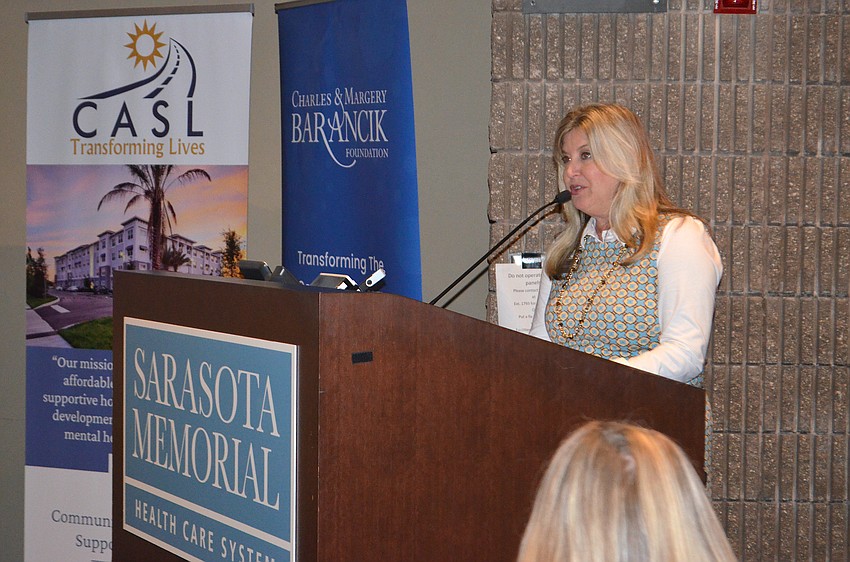- July 26, 2024
-
-
Loading

Loading

Despite efforts by state and local governments to incentivize the development of affordable housing for workforce individuals and families, little has actually been done to close the gap locally. That is in no small part due to the post-pandemic economic realities of rising costs and local real estate market forces.
Both city and county governments have recently enacted legislation to provide density bonuses and cost-saving incentives to help solicit voluntary participation among the development community, but it remains too soon to gauge their effectiveness. Meanwhile, employers are finding it increasingly difficult to attract workers largely because of the cost of housing.
On Wednesday, the Sarasota Chamber of Commerce gathered leaders of the business community in the auditorium at Sarasota Memorial Hospital to share ideas and encourage innovation to help address the problem.
And to administer a reality check.
Sarasota Chamber President and CEO Heather Kasten provided a simple definition of affordable housing, eschewing the complicated formulas of percentages applied to area median income.
“So that we can all make sure we're singing off the same sheet of music, affordable housing is defined as if housing is affordable for an individual if it is less than 30% of their gross income,” Kasten said.
In round numbers, for an individual making $50,000 per year, that equates to housing costs, including utilities, of $1,250 per month. For a family earning, say, $80,000 per year, that’s $2,000 per month.
Neither are easy, or sometimes possible, to find.
Blaming developers is easy, but Gulf Coast Community Foundation Director of Community Investment Jon Thaxton said it isn’t that simple.
“The reality is it's financially impossible to build housing affordable to people making under 100% AMI in Sarasota County,” Thaxton said. “In fact, it's really hard to do it under 200% of AMI because of the cost of the land, the cost of labor, the cost of construction, materials, the cost of permitting, etc. By the time you factor all those in, you cannot produce affordable housing in Sarasota County for over 40% of our households, which equates to 60,000 households currently spending more than 30% of their income on housing.”

Why should that concern the business community? Kasten said the impact over the last two years is a growing inability to recruit, hire and retain employees, particularly recent high school and college graduates. The reverberations throughout the local economy are palpable, particularly as young professionals leave — or never consider coming here — in favor of more affordable locales.
Results of a chamber survey of local businesses reported that 73% of respondents said their ability to do business has been negatively impacted because of the lack of affordable housing for employees.
A survey of workers was even more poignant. “Over 1,500 of our responses came from people who actually turned down jobs in our area because of the lack of affordable housing, and the survey also revealed that single employees are having the most difficult time.”
Key impacts on companies, according to those surveyed, include struggling to retain staff and new hires, decreased employee morale, declining productivity, and rising wages falling short of the increasing cost of living.
"One tech CEO commented that affordable housing is the single most important issue for his company,” Kasten said. “He states that his company is trying to attract the type of young professionals that our community should want to stay in Sarasota.”

A recent survey of the chamber’s Young Professionals Group, Kasten said, yielded more than 500 responses from those ages 40 and younger.
Of those responses, 96% reported that housing is negatively affecting the economy and 70% are considering leaving Sarasota because of the cost of housing, Also, 20% of them are commuting more than 40 miles per day because they cannot afford to live locally.
“A couple of key things from the comments were that YPG members believe there's a disconnect between local wages and our cost of living,” Kasten said. “They feel that the community caters more to tourists, so you can see and feel the real gravity of this housing issue.”
Thaxton revealed some details of a recently completed report by a joint city-county affordable housing advisory committee, highlighting one recommendation in particular.
"It actually came from Drayton Saunders, one of the leading real estate brokers in the Southeastern United States, and the suggestion is that the county take a very small portion of the increase in property taxes that accrued to the general fund budget and appropriate that to the Affordable Housing Trust Fund,” Thaxton said. "There's a rational nexus to it, it makes a lot of sense and it allows our county commissioners to make the decision on how that money is to be spent.”
After an hour of dishing out food for thought, Kirsten Russell, vice president of community impact of the Community Foundation of Sarasota County, left the business leaders with final thoughts to digest.
“Hopefully all of you have learned something and hopefully there's a passion point for you within this,” she said. “What we're hoping today is that you take this information and do something with it because we can talk a lot but we need action.”
The summit was co-sponsored by the Community Foundation of Sarasota County, Gulf Coast Community Foundation, the Charles & Margery Barancik Foundation and Community Assisted Supported Living.
Correction: This article has been updated with the correct the spelling of Jon Thaxton.